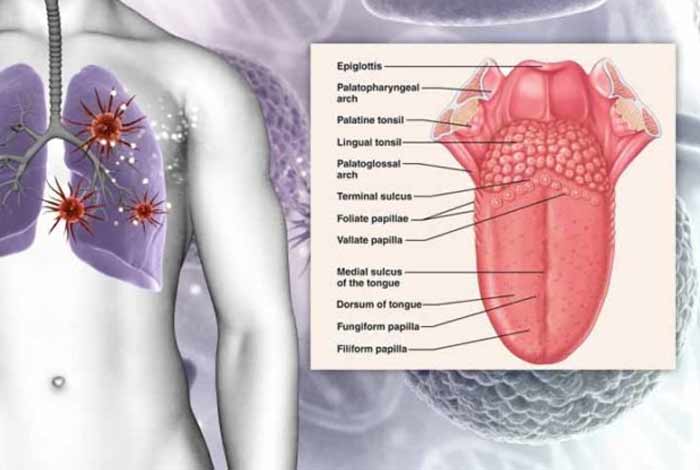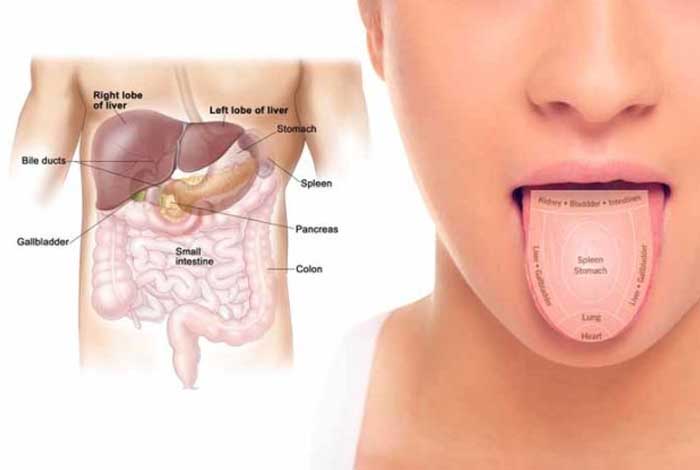
Overview and Facts:
Amyloidosis is the name given to a group of disorders where there is accumulation of an abnormal form of protein called amyloid deposits in different tissues in the body. These deposits are composed of abnormal protein fibers, called amyloid fibrils that accumulate more quickly than they are cleared away, and which progressively interfere with the structure and function of affected organs throughout the body. Normal healthy proteins are cleared away at about the same rate that they are produced but amyloid proteins don’t get cleared away easily and this results in accumulation of these proteins in different organs of the body. About 30 different proteins have been found to form amyloid in man, but only a few are associated with this disease.
Amyloidosis can affect different organs in different people and can affect the functioning and shape of the organ where the amyloid gets collected. It can affect more than one organ in a person. Some of the organs that are usually affected by amyloidosis are heart, nervous system, liver, kidneys, spleen and digestive tract.
It is a serious health condition which can lead to organ failure and can even be life-threatening. Moreover, there is no certain cure for amyloidosis. But, the good part is that it can be treated to control the production of amyloid in body and control the symptoms of the problem.
It is a rare disease. According to stats, in United States, about 4,500 people are diagnosed with AL amyloidosis every year which is one of its types. Most of the cases of amyloidosis that were diagnosed were in the people aged between 55-80 years. Also, the disease is most common in men.
Types and Symptoms:
Various types of Amyloidosis include:
- Primary or AL Amyloidosis: It is the most common type of amyloidosis and is generally found in people who are suffering from a blood cancer known as multiple myeloma. It is systemic and can affect the entire body. However, the generally affected organs are kidneys, liver, intestines, central nervous system (CNS) and the heart. The protein responsible for this form of amyloidosis is AL, i.e. amyloid light chain which is produced in the bone marrow.
- Secondary or AA Amyloidosis: It is generally caused because of chronic inflammatory diseases such as tuberculosis, rheumatoid arthritis, Inflammatory bowel diseases (IBDs) either Crohn’s disease or ulcerative colitis, lupus, etc. The organs affected by this disease are the liver, kidneys, spleen and adrenal gland. The protein responsible for this type of amyloidosis is Amyloid type A protein and hence the name AA amyloidosis.
- Hereditary, or Familial, Amyloidosis (AF): It is a rare form of amyloidosis and is generally inherited. The protein responsible for this form of amyloidosis is abnormal amyloid transthyretin (TTT) which is formed in the liver.
- Dialysis-Related Amyloidosis (DRA): This disease is mostly diagnosed in people who have been going through dialysis for a duration of more than 5 years. The protein responsible for this form of amyloidosis is beta-2microglobulin which gets deposited in joints, bones, and tendons.
- Senile Systemic Amyloidosis (SSA): When the TTT protein gets deposited in the heart or some other tissues it leads to senile systemic amyloidosis and is generally diagnosed in older men.
- Cutaneous Amyloidosis: When the amyloid gets deposited in the skin, it causes cutaneous amyloidosis.
Amyloidosis is a rare health condition and the symptoms are not observed unless the conditions are on its advanced stage. Following symptoms can be observed in a person suffering from of amyloidosis:
- Weakness and Fatigue
- Swelling in the legs and ankles
- Problems with swallowing
- Shortness of breath
- Sudden and unexpected weight-loss
- Diarrhea with the appearance of blood
- Carpal tunnel syndrome, i.e. numbness and pain in hands or feet.
- Enlarged or broaden tongue.
- Appearance of purple colored patches around eyes.
- Thickened skin that is easily bruised.
- Irregular heartbeat.
- Anemia
These are some common symptoms; however, the symptoms vary according to the amyloid deposition in various parts of body. The symptoms in organ-specific deposition of amyloid are:
- Cardiac Amyloidosis or the deposition of amyloid in heart can cause weakening of cardiac muscles and affect the flow of blood in body. The symptoms of this particular kind are breathing problems, irregular heartbeat, fatigue, nausea, and various other symptoms of heart failure.
- Renal Amyloidosis or the deposition of amyloid in kidney. It leads to the build-up of harmful toxins in body and can lead to symptoms such as urine with high levels of protein, appearance of puffs around eyes, and various other symptom associated with kidney failure.
- Gastrointestinal Amyloidosis can interrupt the movement of food inside the stomach and can lead to various symptoms such as stomach ache, diarrhea, and can even affect the appetite of a person leading to weight loss.
Risk Factors
There are some factors that increase the risk of amyloidosis. These are:
- Age: most of the people diagnosed with amyloidosis are aged more than 60 years. There are certain cases of amyloidosis in young people too. However, most of the cases are seen in aged people.
- Gender: this problem is more common in men as compared to women. Nearly 70% of amyloidosis cases are diagnosed in men.
- Genetic: some types of amyloidosis are linked with family history.
- Ethnicity: people who belong to African descent have higher chances of cardiac amyloidosis.
- Kidney Dialysis can lead to buildup of abnormal proteins such as amyloid in blood which can later get deposited in the tissues and organs and lead to amyloidosis.
- Diseases such as an inflammatory disease or a chronic infection can also be a possible cause of amyloidosis.
Do I have it?
Amyloidosis is rather rare and the symptoms are observed when it reaches its advanced stage. However, if you observe any symptom of amyloidosis such as difficulty in breathing, irregular heartbeat, swollen tongue, etc. there are chances that you have amyloid stuck in your tissues or organs. It is a serious condition that can cause harmful complications and can even lead to organ failure.
If you think you have amyloidosis you should visit a doctor for proper diagnosis as there are chances that some other health condition is being confused with it because of similar symptoms. Symptoms such as swollen tongue can even be seen the case of some food infection. Also, irregular heartbeats and breathing problems are also a symptom of Chronic Obstructive Pulmonary Disease (COPD).
A proper diagnosis is required if you want to check for amyloidosis and its types which is affecting your body. Diagnosis can help in determining the treatment method and can help in coping up with its symptoms and also increase the life expectancy.
Causes and Prevention
The major cause of amyloidosis is the deposition of the amyloid protein in the tissues and organs. There are various amyloid proteins that can be produced in body and lead to various different kind of amyloidosis.
However, there is still no clarity about what causes the amyloids to form. Genetic factors and diseases such as chronic infections and inflammatory diseases are known to be associated with this disease.
Diagnosis and Tests
Amyloidosis can be diagnosed by physical examination and various tests. The diagnosis is often delayed because the signs and symptoms are not specific and vary greatly so that the doctor has to think of the possibility of amyloidosis being present. The diagnosis helps in finding the location of amyloid deposition in body. The various diagnosis methods are:
- Physical Examination, i.e. the examination of the common symptoms of the problems and the medical history of patient to check for the type of amyloidosis.
- Blood and Urine Examination: Urine of a person is examined to check for the protein levels. Higher protein levels indicate that amyloid is being collected inside kidney. Also, blood test is used to check for the levels of alkaline phosphate (ALP) in blood, cardiac condition examination and to check for the presence of abnormal antibodies.
- Echocardiogram and Cardiac Magnetic Resonance (CMR): These are imaging tests that can provide ultrasound images of heart and can help in finding out the location and extent of amyloid deposition in the heart.
- Tissue or Organ Biopsy: A biopsy sample taken from a tissue or organ which is expected to be affected by amyloidosis. The sample is later examined under a microscope and is tested for the presence of amyloid. The tissues that are used as a biopsy sample include biopsy from the skin under abdomen (fat pad biopsy), biopsy from under the lip (labial salivary gland biopsy), or the biopsy sample from bone marrow.
- Bone Marrow Aspirate: Bone marrow samples are examined to check for the percentage of plasma cells that are involved in the production of amyloid in blood. Besides the bone marrow biopsy, another sample called bone marrow aspirate, i.e. liquid bone marrow sample can be used for the examination of amyloidosis.
The diagnosis helps in determining the appropriate methods for the treatment of amyloidosis.
Treatment and Care
There is no treatment presently available that can help in eliminating amyloidosis by removing the buildup of this amyloid protein, however, there are treatments to stop more of the abnormal proteins being produced and treat your symptoms. The treatment is dependent on the kind of amyloidosis and its cause.
If the cause of amyloidosis is the development of certain amyloid protein in body then it can be treated by controlling the production amount of that protein. But, if the cause of the problem lies in some other medical condition then treating that particular medical condition can help.
The various methods used for the treatment of amyloidosis are:
- Chemotherapy alone, or along with stem cell transplant can be helpful in the elimination of the proteins that contribute to the formation of amyloid in blood. It is effective in people who have not more than one organ damaged by amyloidosis. Various drugs used for chemotherapy include Melphalan, Bendamustine, Cyclophosphamide, etc.
- In case amyloidosis is caused because of some secondary factor such as inflammatory disease or chronic infection, steroidal medication or anti-inflammatory drugs can help in coping up with the problem.
- In case of hereditary amyloidosis (AF), organ transplantation might help in the treatment of amyloidosis.
Amyloidosis is a serious disorder and can cause serious complications such as organ failure and can even lead to death. However, it is necessary to provide emotional support to a patient newly diagnosed with amyloidosis. It is important to make them believe that they can get over this problem no matter how complicated it is. It is important to provide them hope to go on with the treatment process as it can help them in fighting the symptoms of the problem and can increase their life expectancy.
OTC Medication and Self-Management Methods
There is no certain over-the-counter medication prescribed for the treatment of amyloidosis. It is a rare and serious health condition and intake of any kind of OTC medications might cause serious health complications.
However, doctors prescribe certain medications to cope up with the symptoms of amyloidosis. Medications such as anti-inflammatory and anti-diarrheal medications can help in coping up with the symptoms of amyloidosis.
Besides the medication, it is necessary to balance the diet and keep the body fit as it can help in fighting the symptoms of the problem. Also, it is necessary to believe in the treatment and keep on going with it. It is necessary to keep fighting the problem with all the willpower to live a longer life.
Natural Ways to Treat
Amyloidosis certainly has no treatment. However, there are some natural treatment methods that can help in coping up with the symptoms of the problem and can also be useful in prevention of the health condition.
Natural treatment of amyloidosis lies within the diet. There are certain diet changes that can help in the treating the condition naturally. Also, rest plays a major role in natural treatment of amyloidosis. Fruits and vegetables and foods that are rich in omega-3 fatty acids provide can help in providing appropriate nutrition that can help in treating the symptoms of the problem.
A low-salt diet and foods that are rich in fiber can also help. Also, a chemical called Germanium can help in amyloidosis. Also, red wine, which is rich in resveratrol can be helpful in preventing the body from this condition.
Health Tip by Experts
Amyloidosis is a serious condition and certainly has no cure, but it is advised not to lose hope and keep going with the treatment. The treatment might not cure the problem but can increase the life expectancy and can help a person live a little longer with their loved ones.












